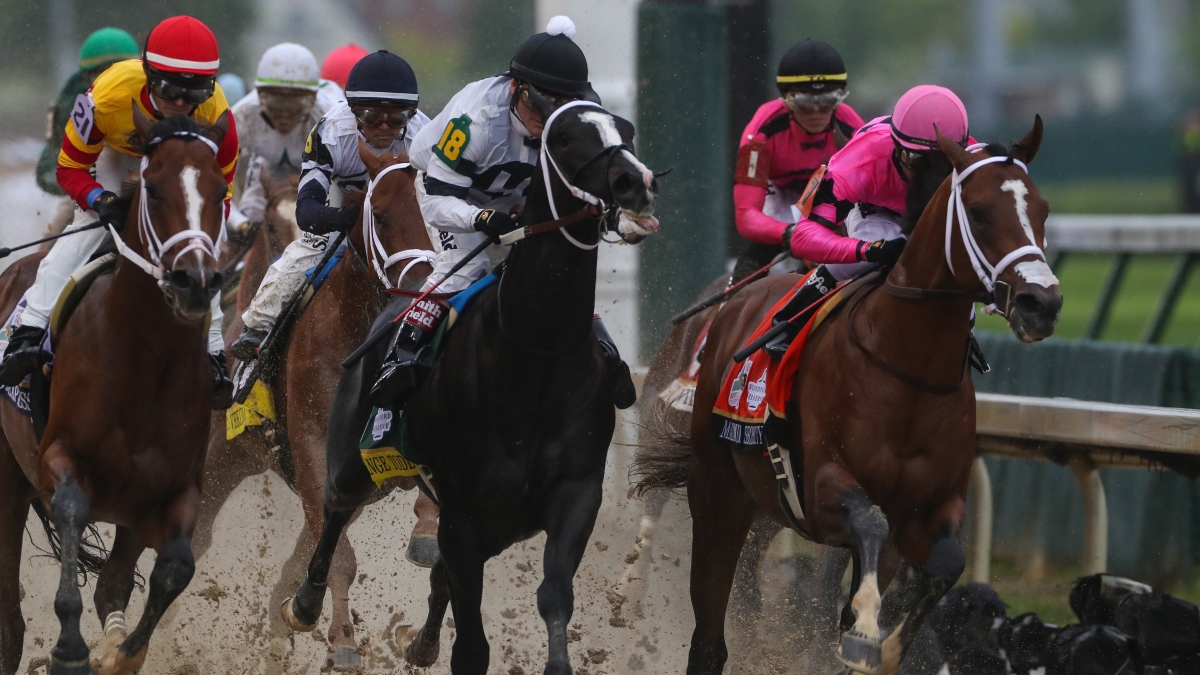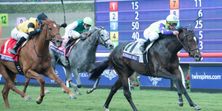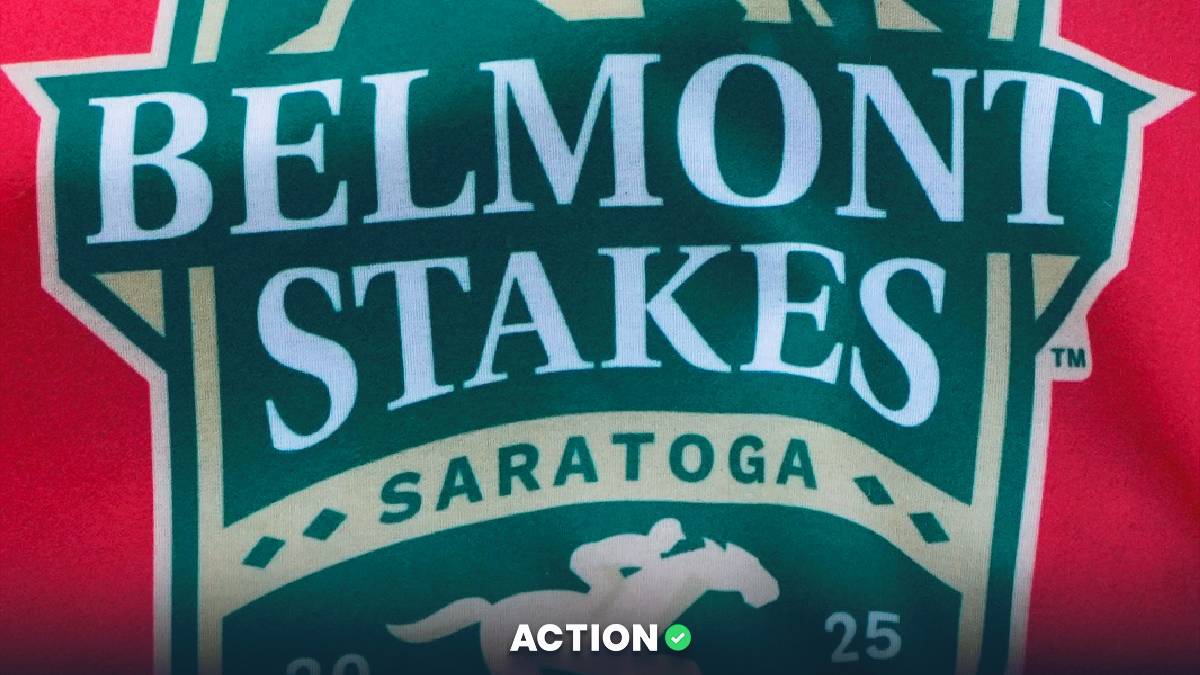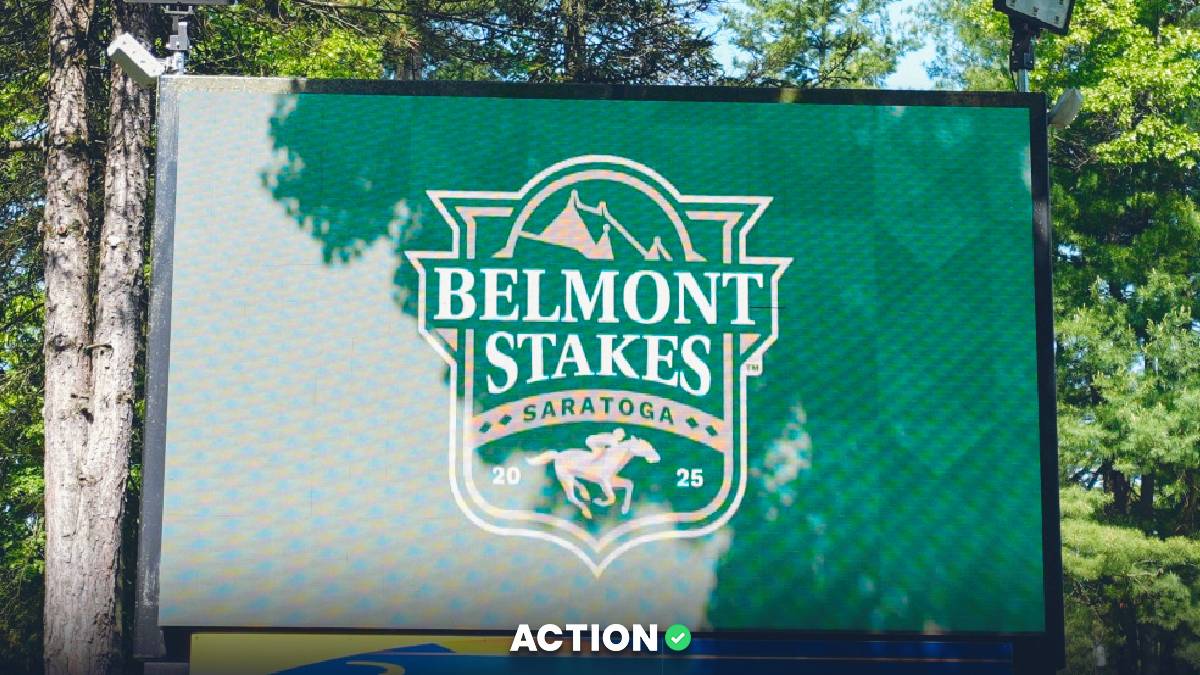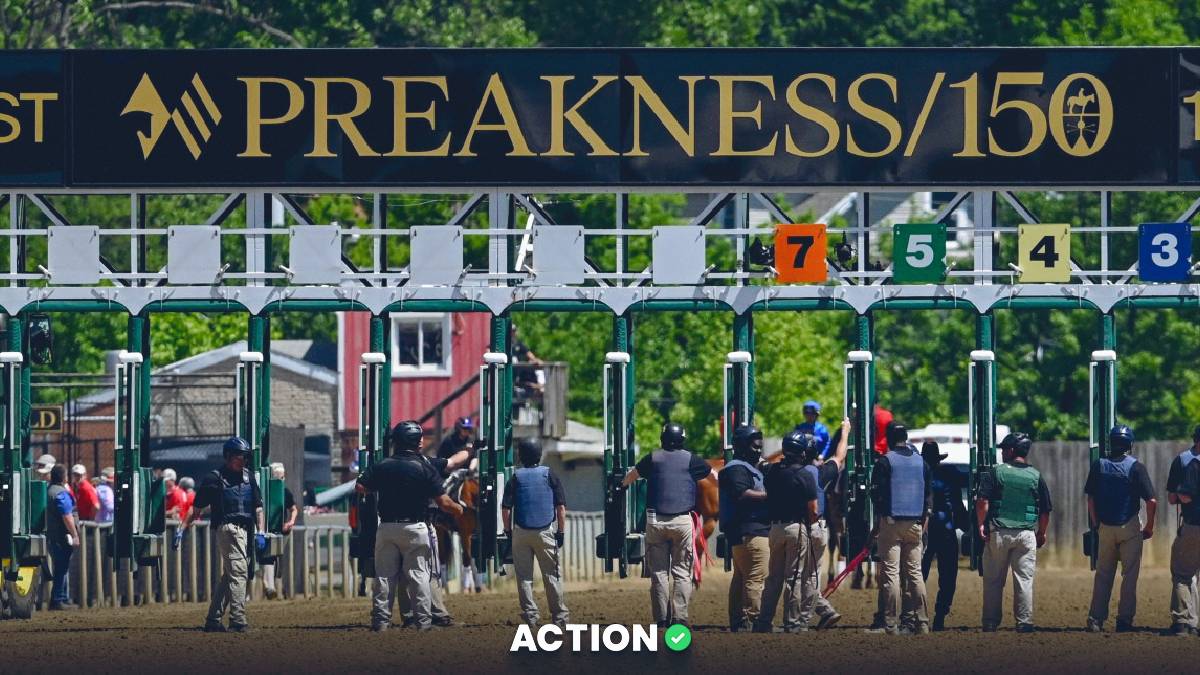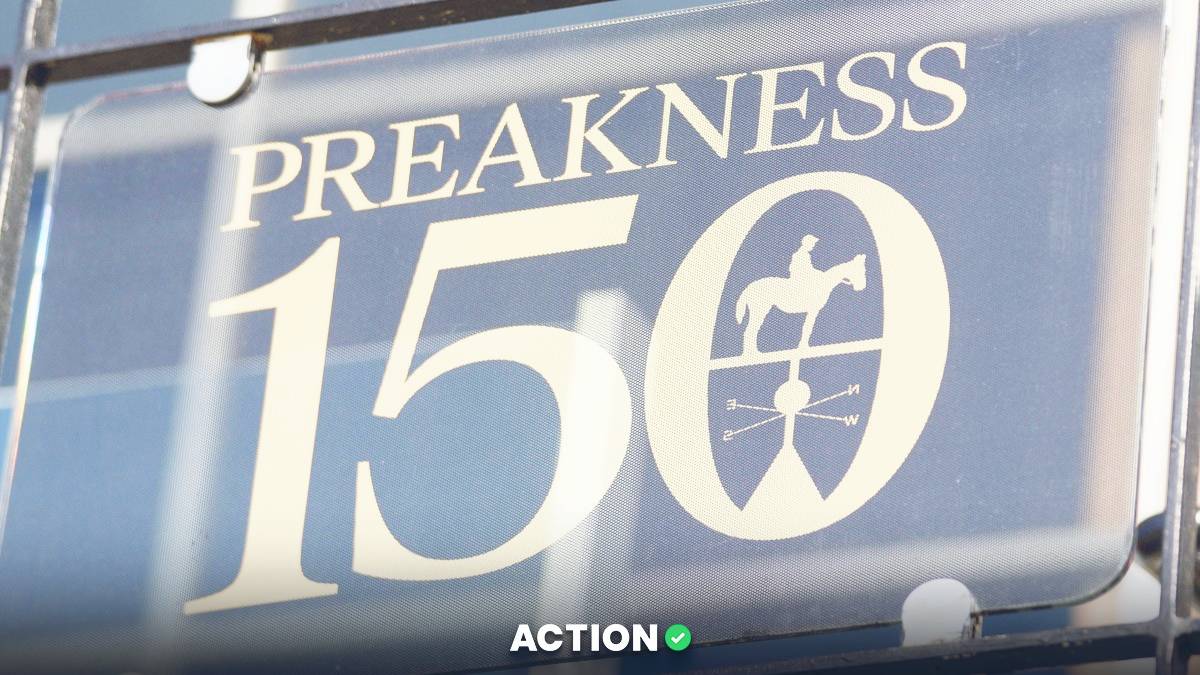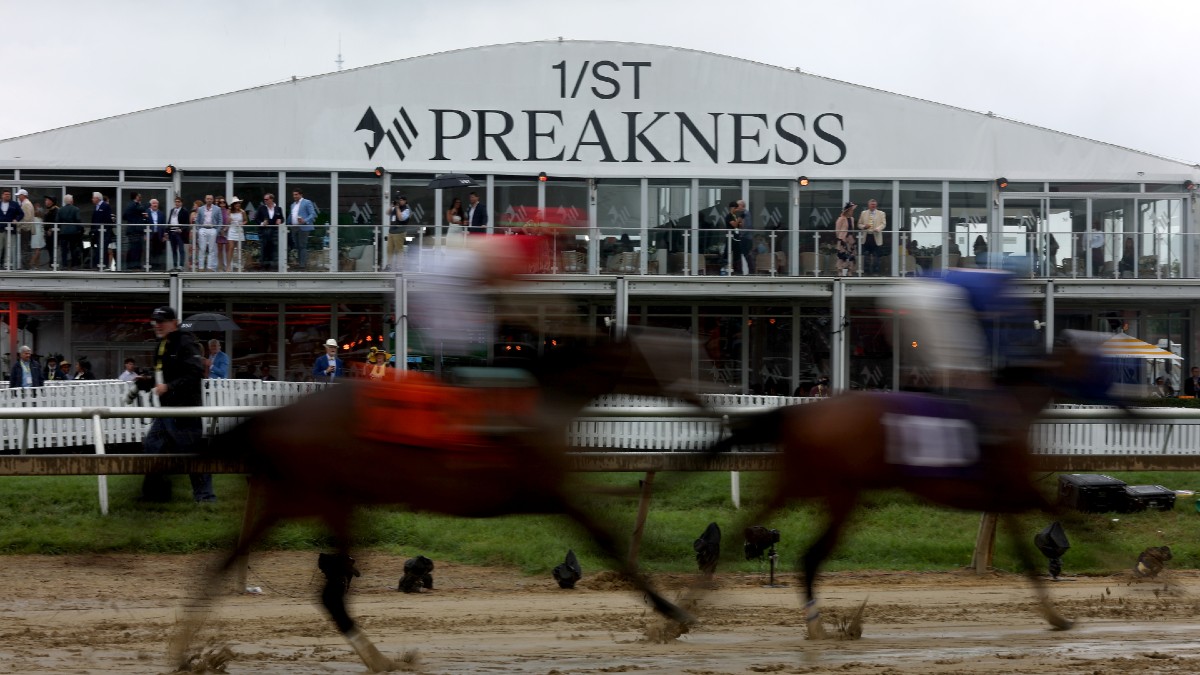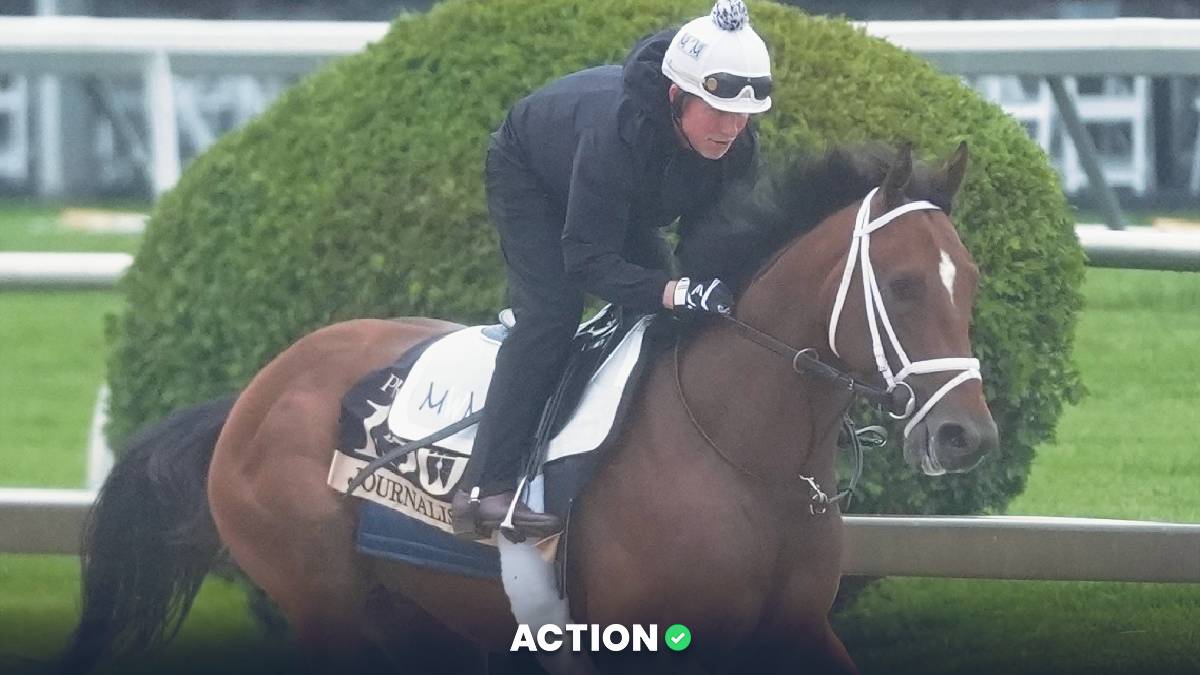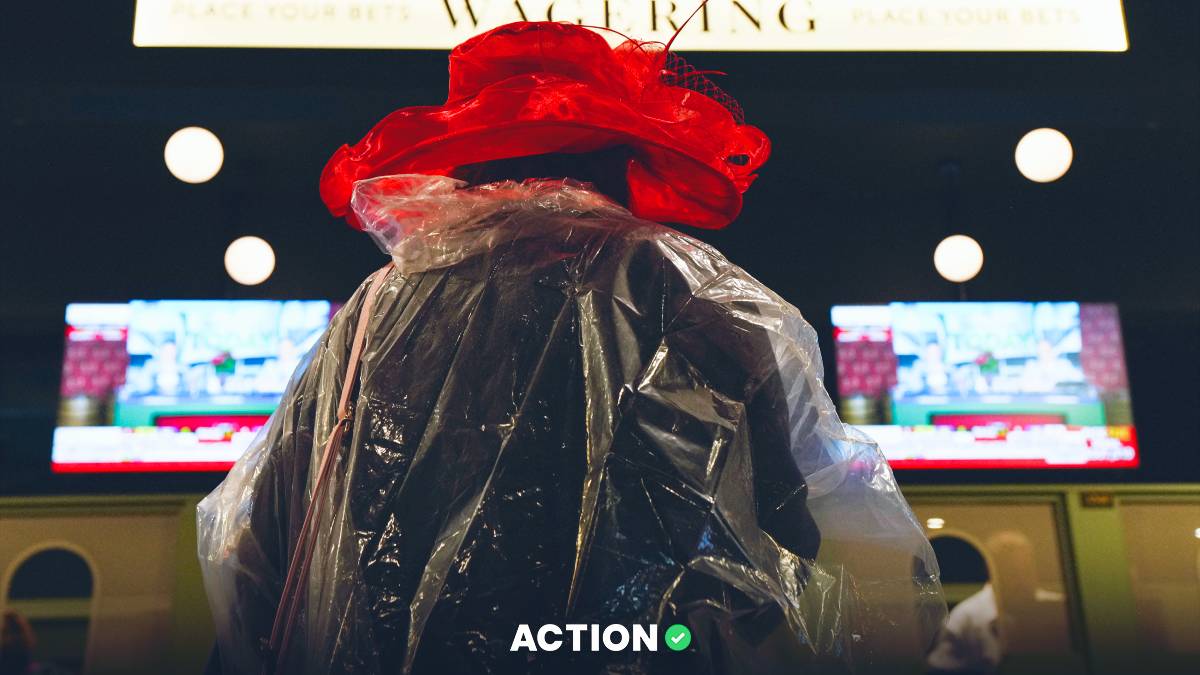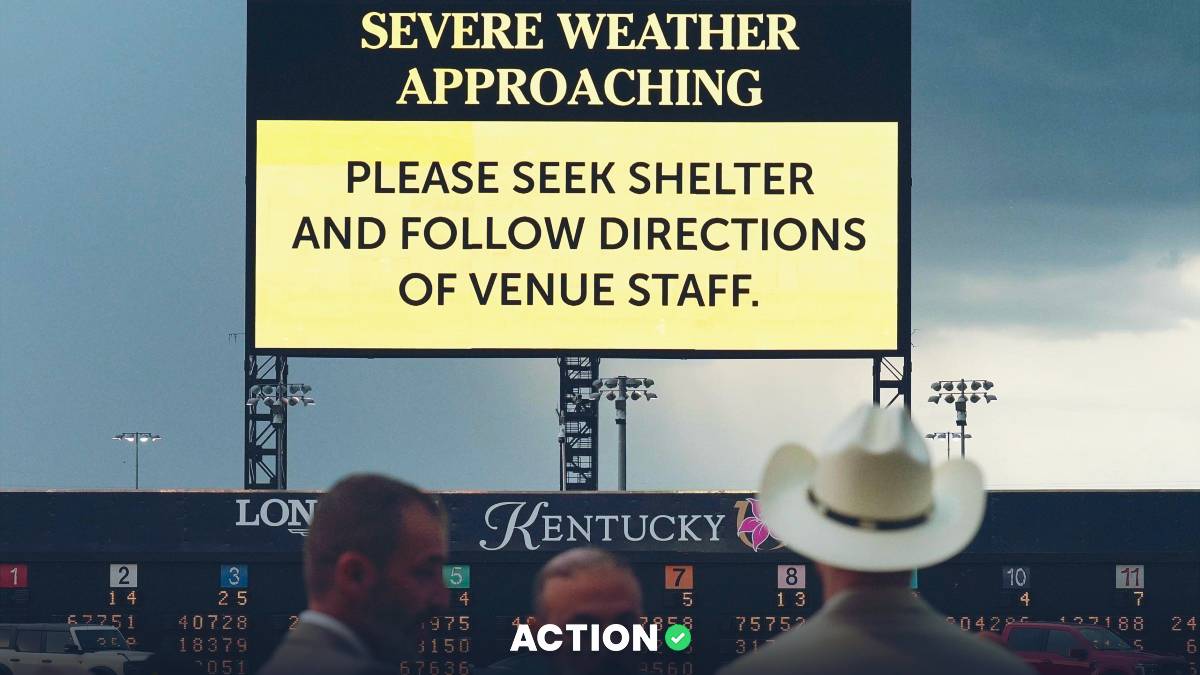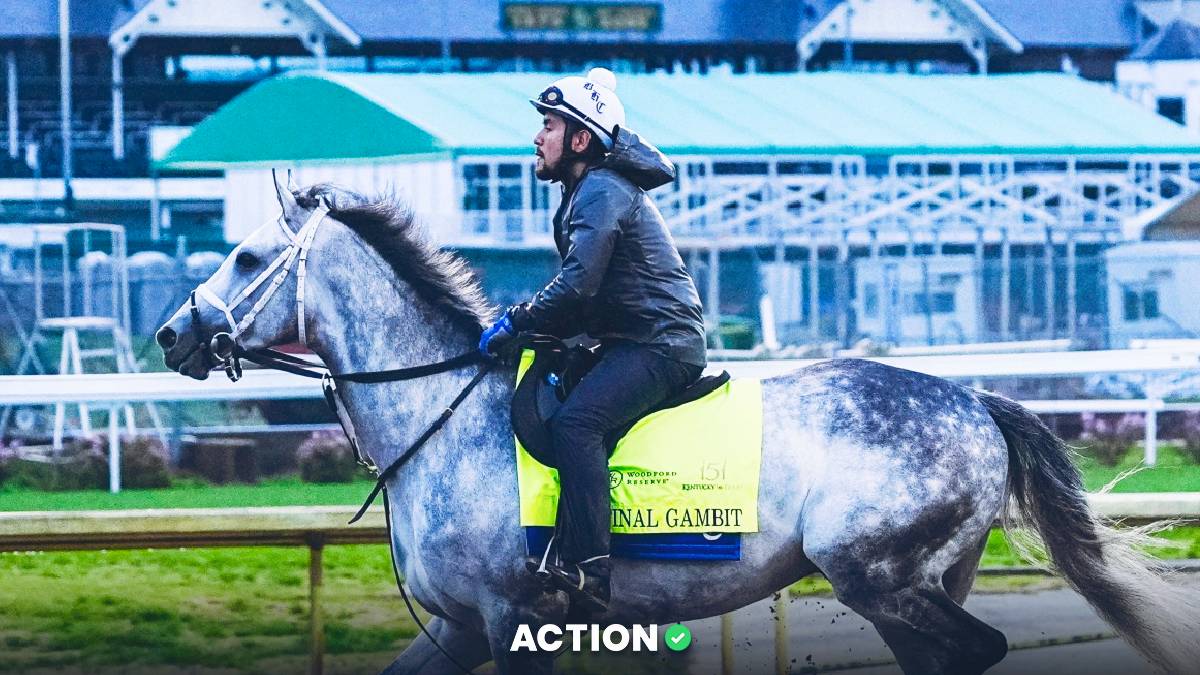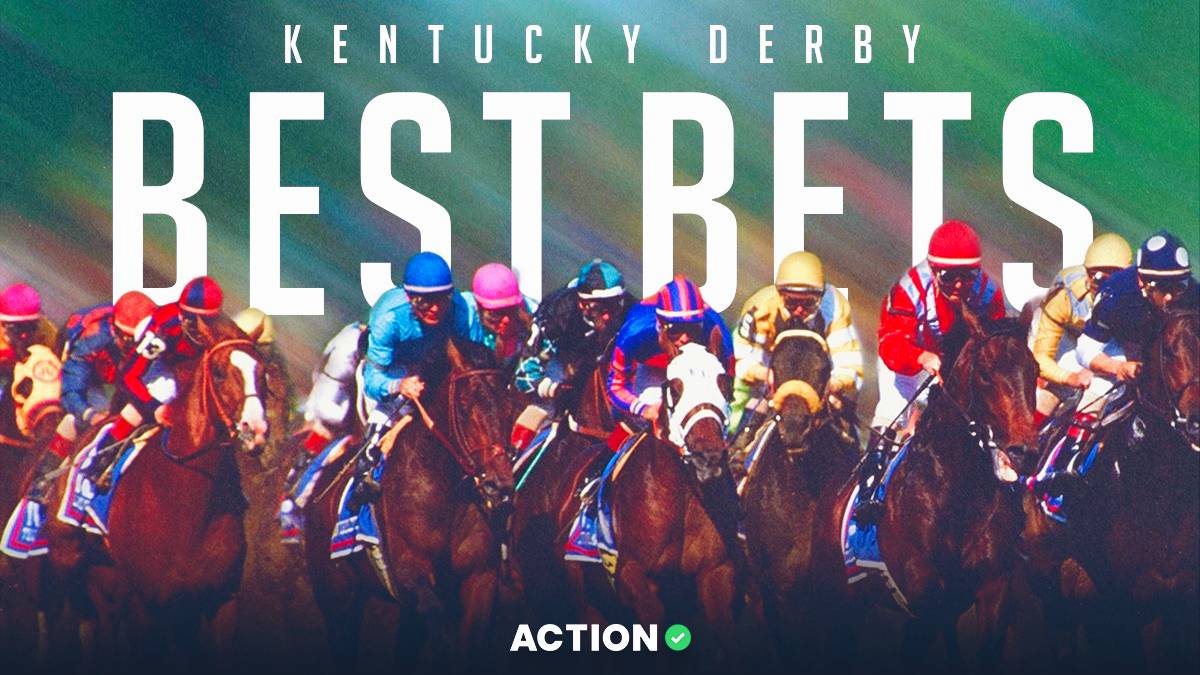For sports bettors in the United States, horse racing represents the last bastion for actionable entertainment amidst the turmoil of the COVID-19 pandemic. However, that too may soon come to an end.
Gulfstream Park seems intent on making it through their big prep race, Saturday's Grade 1 Curlin Florida Derby, despite a county ban on non-essential business. The track has threatened legal action if the government tries to shut them down.
Lots of money is at stake – the betting handle should be enormous this weekend for one of the most prestigious Kentucky Derby prep races, especially as the most significant event on the live sports calendar. And Aqueduct doubled their average revenue over the March 13-15 weekend once the Meadowlands racetrack ceased operations.
Even still, cost-cutting measures have hit horse racing like the rest of the sports world. Without fans in attendance at the track or in their casino, Gulfstream Park reduced the purse for each of Saturday's stakes races.
Oaklawn Park also trimmed the purse for the Arkansas Derby – which was moved from April 11 to May 2, the original date for the Kentucky Derby (now scheduled for September 5th).
As the 2020 horse racing calendar continues to shift drastically, it has a significant impact on the eventual 2020 Kentucky Derby field and all wagers connected to that race – including the $1.5 million in handle within Kentucky Derby future pools.
Kentucky Derby Future Pools
To date, Churchill Downs has run the following future pools for the 2020 Kentucky Derby and Oaks weekend:
- KY Derby Future Wager Pool #1 (Nov. 28 – Dec. 1)
- KY Derby Sires Future Wager (Nov. 28 – Dec. 1)
- KY Derby Future Wager Pool #2 (Feb. 7 – Feb. 9)
- KY Derby Future Wager Pool #3 (Mar. 6 – Mar. 8)
- KY Oaks Future Wager Pool (Mar. 6 – Mar. 8)
- KY Oaks/Derby Double Future Wager (Mar. 6 – Mar. 8)
In states where sports betting is legal, you can bet Kentucky Derby futures at fixed odds at particular sportsbooks like you would bet on the next Super Bowl winner, or Stanley Cup champion – and lock your odds in at whatever price you bet them at the time.
In states where horse betting is legal, they offer pari-mutuel Kentucky Derby future pools, where a bettor doesn't know their actual odds until that Pool closes.
Bets of a particular type (win and exacta for Derby purposes) are pooled together, the house takes their cut, and payoff odds are calculated by sharing the Pool amongst the winning bets.
Future Pool Accuracy
The data shows that this far out from Kentucky Derby day, Futures Pools aren't so accurate at predicting who will be in the starting gates.
As you can imagine, the closer to Derby day, the better the Pool does at including the 20 inevitable Derby runners. Here are the percentages of Derby starters captured by each Pool, on average, since 2017:
- Pool 1: 33%
- Pool 2: 43%
- Pool 3: 60%
- Pool 4: 80%
Too Many Betting Options
There's also the issue of how many runners the public has had to bet on in general.
Over the past three years, the four futures pools have averaged a total of 46.3 unique horses, in addition to the “All Other 3-Year-Olds” category.
We're already at 41 horses in 2020, could surpass 50 by Pool 4 with all of the present uncertainty, and could perhaps get up to over 70 total if there are more futures pools offered this summer.
There could be up to or potentially more than 50 horses that were offered for futures betting who will never reach the Kentucky Derby starting gate in 2020 – double the number of "lost opportunities" for bettors and "free money" for the house as in previous years.
Off the Radar Horses
Five months out, there's about a 30% chance that one of the horses in a future pool will even make the Derby field – compared to an 80% chance one month out from the race.
At this point, only a few horses (all with greater than 60 points) have likely qualified for the Derby field.
Over the past four years, the final horse to qualify for the Derby has averaged 33 points, with a low of 29 and a high of 40.
But if more qualifying races are added in this tumultuous year, the six horses between 50-54 points still have work to do, and at least 11 spots in the 20 horse field remain wide open for the taking.
Notice how over the past three years, none of the horses involved in potential win scenarios was even listed for betting during the first two future pools.
Last year, Maximum Security wasn't listed until Pool 4, and Country House was listed in Pool 3 but taken off the list again before Pool 4.
Since 1999, 48% (10 of 21) Kentucky Derby winners didn't appear in a future pool until what is now known as Pool 2. Pool 3 missed on 33% of Derby winners, and Pool 4 has whiffed on just four winners – all longshots on Derby Day.
Of those four horses, Country House (2019, $132.40) did make an appearance in Pool 3, but the other three horses – which included Mine That Bird (2009, $103.20); War Emblem (2002, $43); and Charismatic (1999, $64) were only ever available as part of field bets.
Effectively, relative to the 2020 Kentucky Derby, we are back to the same point in time as Pool 1 betting in a typical timeline.
Impact on Futures Wagering
“All Other 3-Year-Olds” has closed as the March future pool favorite in 15 of the last 18 years, and now seems like an even more attractive option with all of the uncertainty surrounding this year's Kentucky Derby lineup.
Racehorses change dramatically between two and three years old, and also from three to four – generally reaching their peak somewhere between four and five years old.
Up until March 16th, future bettors placed Kentucky Derby wagers on an event scheduled for May 5 – based upon data about horses which they expected to peak on that date.
Now that the race has moved back six months, it's like those same bettors were told that their bets for this year's NCAA tournament wouldn't be refunded and will instead carry over into 2021.
Watching a horse develop throughout their three-year-old season is akin to watching a great college athlete grow over four years.
And it's hard to imagine that, had bettors known about the delay, that they wouldn't have been smashing the "All Other" option all along.
Qualifying Points, and the Road to the Kentucky Derby
The Kentucky Derby prep racing calendar was about to wind down, but will now need to ramp back up over the summer and work around some other prestigious races which are typically scheduled from August through November.
By maintaining a purse of $750,000, the Florida Derby and the Arkansas Derby each retain 170 total qualifying points towards the Kentucky Derby, distributed on a 100-40-20-10 scale to its first four finishers.
But there will be more qualifying races in 2020 than ever before – and though the Kentucky Derby and Preakness Stakes will both run in September, the Belmont Stakes has yet to announce a definitive date.
With the Breeders Cup scheduled for November 6 and 7, it's unlikely that a potential Triple Crown champion – who would have presumably run the Kentucky Derby on September 5, Preakness Stakes on September 19, and Belmont Stakes on October 10th – all after completing at least one or two tuneups – would have anything left in the tank to run against older horses at Keeneland by the first week in November.
And we need to account for the Mid-Summer Derby, the Travers Stakes, which is currently scheduled for August 29th; in almost direct conflict with the Kentucky Derby.
As a result, the Belmont Stakes may become the first leg of the Triple Crown this year – which means that both the Belmont and a likely rescheduled Travers could each offer qualifying points and serve as new, significant preps for the 2020 Kentucky Derby.
It's entirely possible that, due to the adjusted schedule, other races that were never part of the Derby trail will get thrust into the spotlight.
No Refunds
After the Kentucky Derby was rescheduled, Churchill Downs spokesman Darren Rogers stated that 1) no refunds will be issued for earlier Futures Pools; 2) they plan to continue with Futures Pool #4 scheduled for April 3-5 and; 3) also plan to apply for additional rounds of futures betting in July and August.
Churchill Downs is seemingly under no obligation to refund the bets. In essence, the rules only stipulate a refund, "in the event the 2020 Kentucky Derby is not run or does not produce an official winner," but makes no mention that the Derby needed to run on the originally scheduled date.
However, by both refusing to refund the wagers and also planning to take extra time over the summer to run more of these pools, they are capitalizing on the uncertainty of the current climate.
Churchill Downs has handled more than $1.5 million in future wagers since November, up more than 10% compared to their handle at the same point in 2019 – and they took in more than a half-million alone for the final futures pool last year.
As a result, they could increase their futures handle by 66% year over year if they also add the two additional futures pools during the summer.
The more Kentucky Derby pools that Churchill Downs can run, and the more unique horses that they can include from pool to pool, the more potential money that they can generate – while fewer bettors will ultimately get paid out.
But for now, they should either put Pool 4 on pause or restart the 2020 timeline with Pool 4 as Pool 1 and refund the money from the earlier future Pools.
In terms of predictability based upon the timeline, we're in the 30% range in for listed horses actually making the Derby – and it's a 50/50 shot of whether the Derby winner will be an individual betting option as of yet.
Furthermore, the racing calendar is in complete upheaval, and futures bettors are technically wagering on horses to win qualifying points in races whose dates and locations are now yet to be determined.
This is a lose-lose situation for the betting public, while Churchill Downs scrapes the same-sized cut from a larger pool of money.


